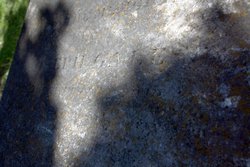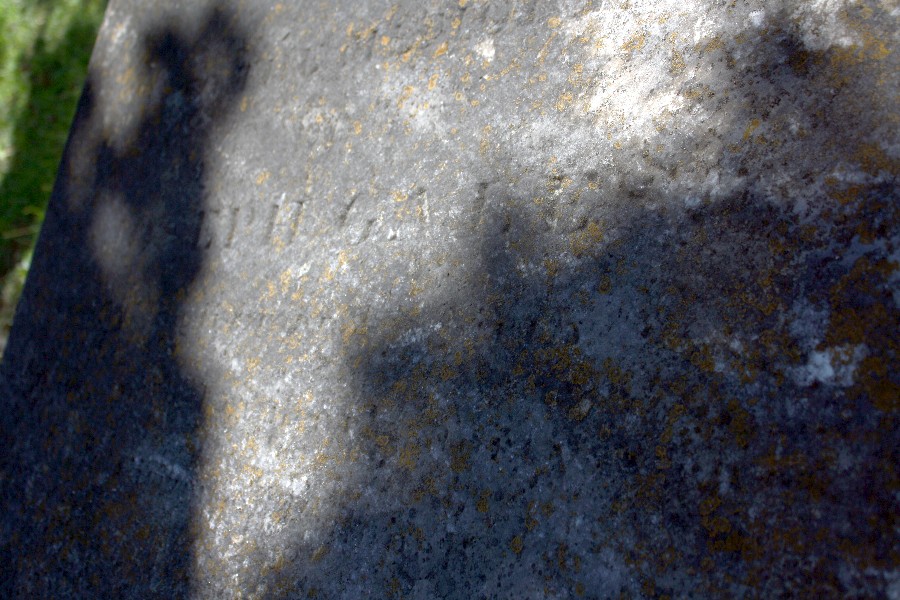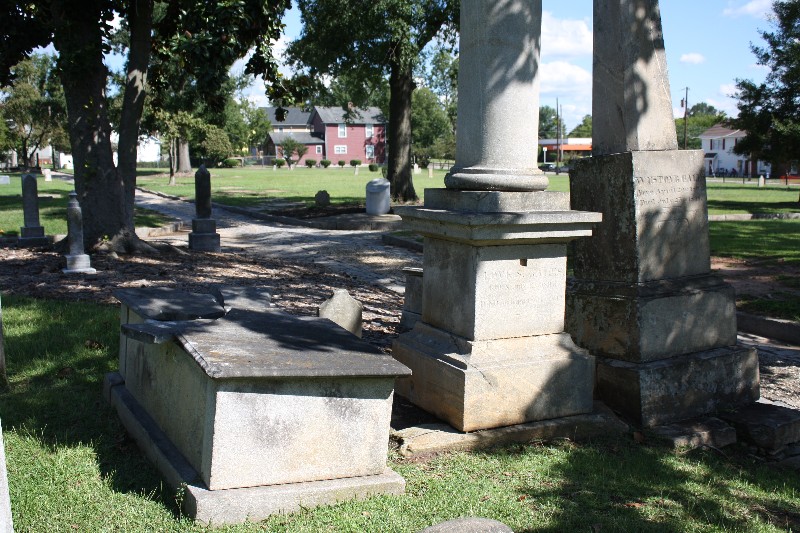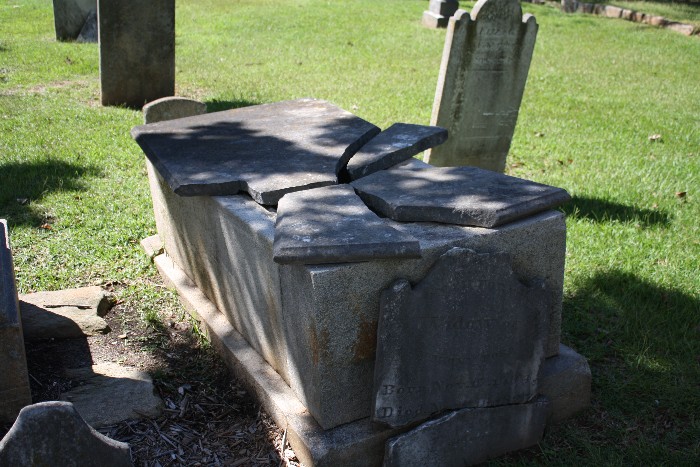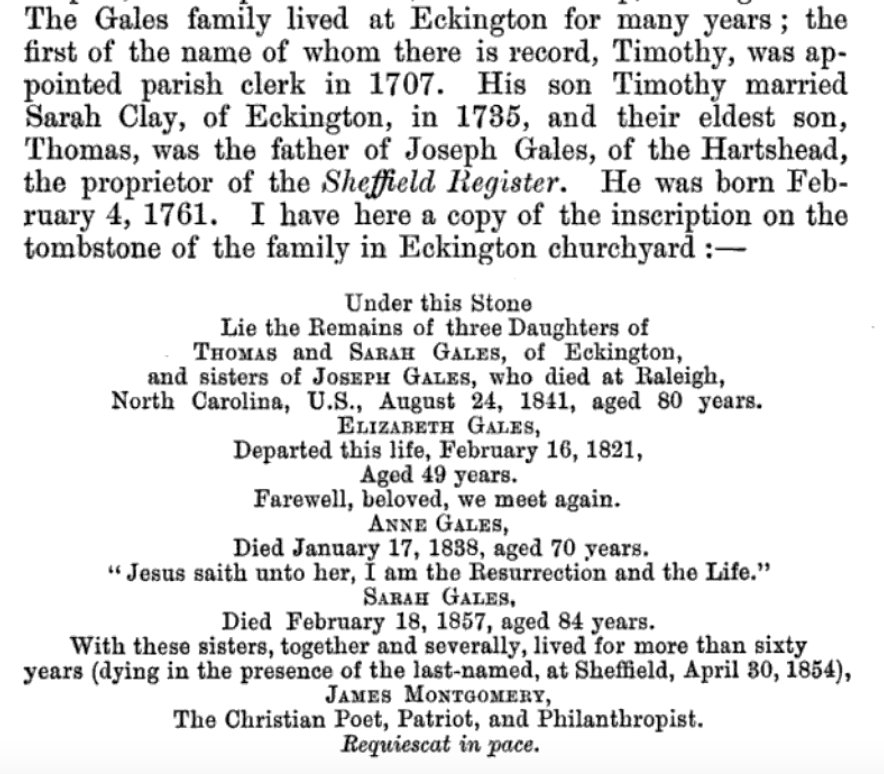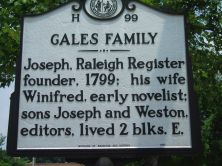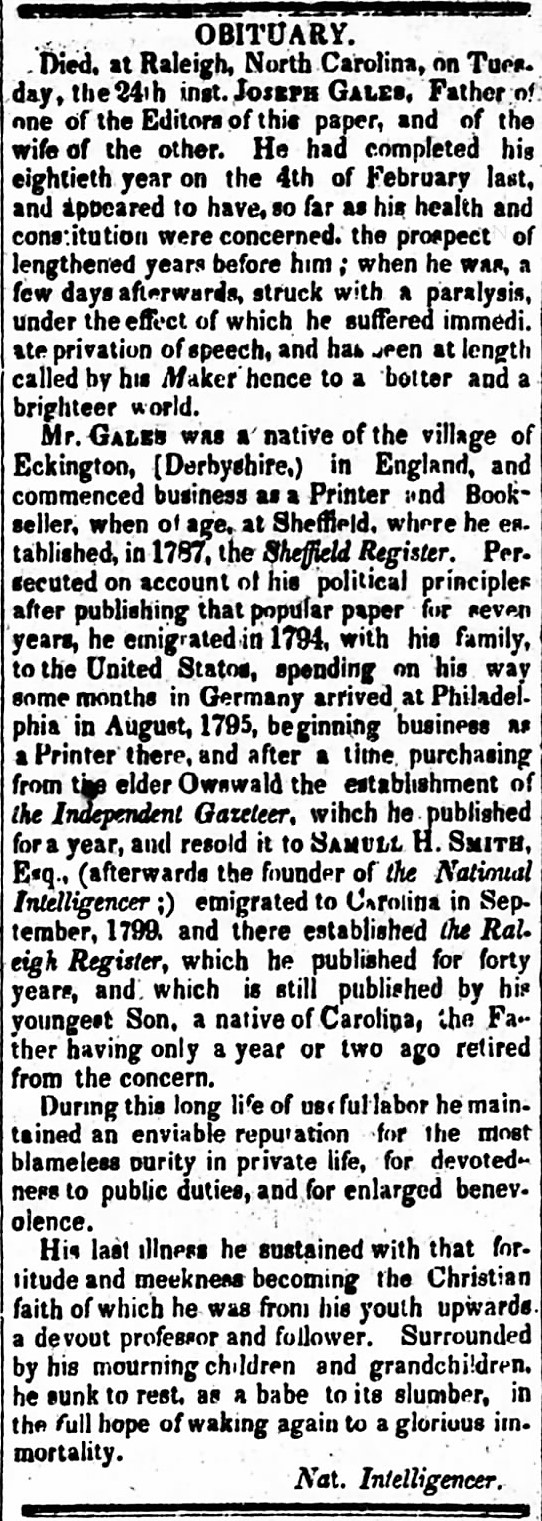Joseph Gales fled to Germany, the rest of the family met up with him, and they finally immigrated to Philadelphia in 1795 where he started the Independent Gazetteer espousing the views of the Jeffersonian Republicans.
Early in 1798, Gales was approached by certain members of the North Carolina delegation to Congress about relocating to Raleigh, NC. Nathaniel Macon, in particular, recognized in Gales the type of editor needed by Republicans. With the crucial election of 1800 approaching and the party in need of a forceful editor to promote the Jefferson cause, Macon and his friends urged Gales to move to Raleigh, the state's new capital, and begin a newspaper. As an inducement he was promised the state printing contract. Pleased with the idea, the family arrived in 1799, and Gales soon started the Raleigh Register and North-Carolina Weekly Advertiser.
Gales ran the Raleigh Register alone until 1821, when he brought his youngest son, Weston, into the firm as a partner. On 18 Nov. 1823 the two Gales began publishing the Register as a semiweekly, the first to appear in North Carolina. However, the twice-weekly schedule proved unsatisfactory because North Carolina's population was too sparse to support it. Therefore on 11 Nov. 1831 the Register reverted to weekly publication.
A semiweekly publication was but one of the many innovations made by Joseph Gales in newspaper publishing in North Carolina. Not the least was the verbatim accounts of speeches delivered in the halls of Congress and the chambers of the state capitol. Many a famous speech was saved from oblivion by the shorthand reporting of Gales. He taught the art to his sons Joseph, Jr., and Weston, his son-in-law William W. Seaton, and a number of apprentices. E. J. Hale, longtime editor of the Fayetteville Observer, learned his trade as a printer and reporter from Joseph Gales.
But Gales did more. He used the columns of the Register to promote improvement and reform within Raleigh and North Carolina. Before the Register was a month old, Gales advocated a medical society for the state as a means of combating "the fatal and criminal practices of Quacks and Empyrics." The "bloodthirsty and lawless" custom of dueling he opposed as "repugnant to religion, justice & mercy." Education also enlisted Gales's interest, as it had when he edited the Sheffield Register. Not only did he champion the cause of schools in his paper, but also in 1801 he was one of the incorporators of the Raleigh Academy, which opened in 1804. Libraries, too, were high on Gales's list of needs for society. He declared on one occasion that a public library would go further "to improve the condition of society than any other means that could be devised."
By 1834, the veteran editor had retired to Washington, DC to be with his son, Joseph Gales, Jr., co-editor and owner with his son-in-law, William Winston Seaton, of that powerful Washington, DC journal, the National Intelligencer. Joseph, Jr. was also elected mayor of that city. Joseph, Sr. became treasurer of the National Organization, which fought for the emancipation and repatriation of slaves to Africa.
Winifred died in DC in 1839. Joseph Gales died in Raleigh in 1841.
Joseph Gales fled to Germany, the rest of the family met up with him, and they finally immigrated to Philadelphia in 1795 where he started the Independent Gazetteer espousing the views of the Jeffersonian Republicans.
Early in 1798, Gales was approached by certain members of the North Carolina delegation to Congress about relocating to Raleigh, NC. Nathaniel Macon, in particular, recognized in Gales the type of editor needed by Republicans. With the crucial election of 1800 approaching and the party in need of a forceful editor to promote the Jefferson cause, Macon and his friends urged Gales to move to Raleigh, the state's new capital, and begin a newspaper. As an inducement he was promised the state printing contract. Pleased with the idea, the family arrived in 1799, and Gales soon started the Raleigh Register and North-Carolina Weekly Advertiser.
Gales ran the Raleigh Register alone until 1821, when he brought his youngest son, Weston, into the firm as a partner. On 18 Nov. 1823 the two Gales began publishing the Register as a semiweekly, the first to appear in North Carolina. However, the twice-weekly schedule proved unsatisfactory because North Carolina's population was too sparse to support it. Therefore on 11 Nov. 1831 the Register reverted to weekly publication.
A semiweekly publication was but one of the many innovations made by Joseph Gales in newspaper publishing in North Carolina. Not the least was the verbatim accounts of speeches delivered in the halls of Congress and the chambers of the state capitol. Many a famous speech was saved from oblivion by the shorthand reporting of Gales. He taught the art to his sons Joseph, Jr., and Weston, his son-in-law William W. Seaton, and a number of apprentices. E. J. Hale, longtime editor of the Fayetteville Observer, learned his trade as a printer and reporter from Joseph Gales.
But Gales did more. He used the columns of the Register to promote improvement and reform within Raleigh and North Carolina. Before the Register was a month old, Gales advocated a medical society for the state as a means of combating "the fatal and criminal practices of Quacks and Empyrics." The "bloodthirsty and lawless" custom of dueling he opposed as "repugnant to religion, justice & mercy." Education also enlisted Gales's interest, as it had when he edited the Sheffield Register. Not only did he champion the cause of schools in his paper, but also in 1801 he was one of the incorporators of the Raleigh Academy, which opened in 1804. Libraries, too, were high on Gales's list of needs for society. He declared on one occasion that a public library would go further "to improve the condition of society than any other means that could be devised."
By 1834, the veteran editor had retired to Washington, DC to be with his son, Joseph Gales, Jr., co-editor and owner with his son-in-law, William Winston Seaton, of that powerful Washington, DC journal, the National Intelligencer. Joseph, Jr. was also elected mayor of that city. Joseph, Sr. became treasurer of the National Organization, which fought for the emancipation and repatriation of slaves to Africa.
Winifred died in DC in 1839. Joseph Gales died in Raleigh in 1841.
Family Members
Advertisement
Advertisement
